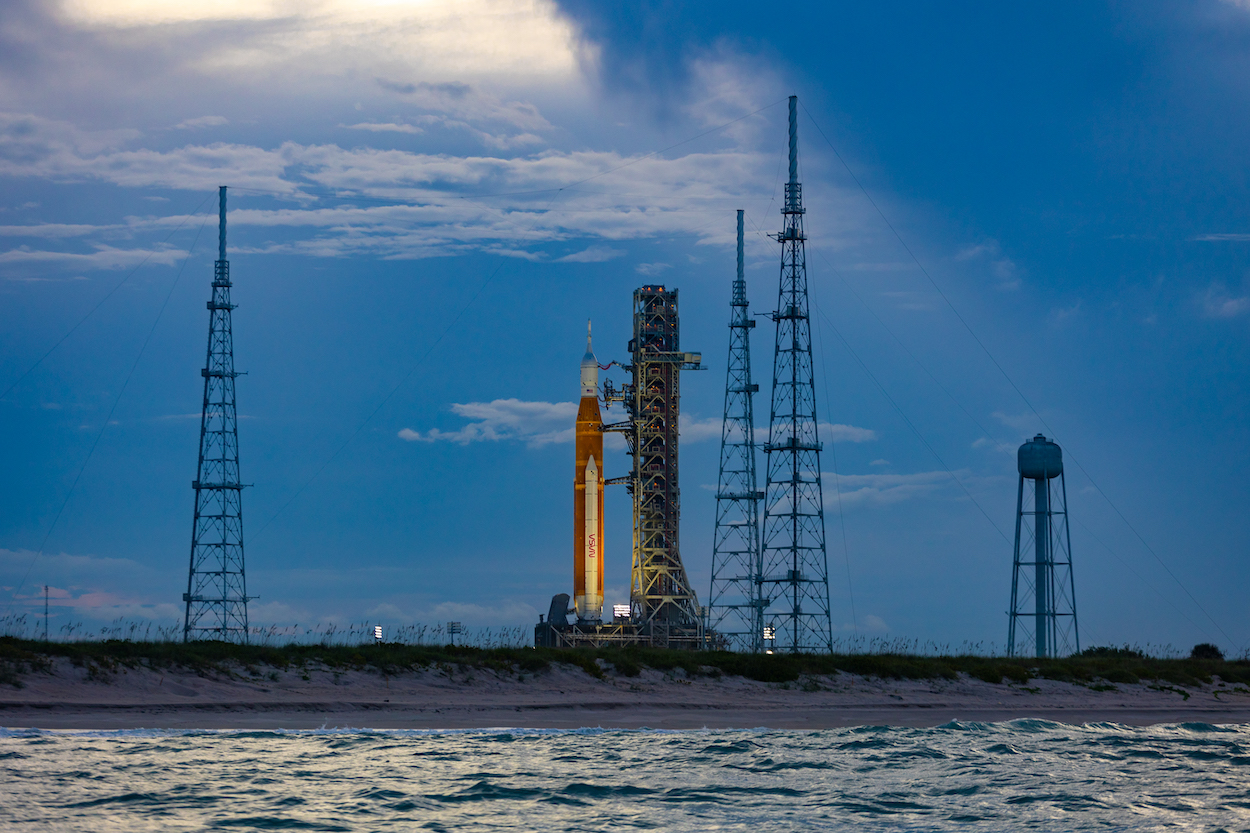
Monday’s high-profile scrub of the Artemis 1 launch had caused division within the launch media community. The decision to go through with a launch attempt versus completing a full wet dress rehearsal has some attacking NASA for wasting time and resources.
Editorial Note: This is an opinion post based on the author’s beliefs, not a news report of current Artemis 1 events.
A wet dress rehearsal could have mitigated Monday’s scrub
NASA originally planned to complete a wet dress rehearsal down to T-9 seconds, but after several issues with different systems of the rocket, it settled for T-29 seconds. That doesn’t sound like much, but a lot still happens within those 20 seconds. One test that was planned to take place was the engine bleed test that eventually scrubbed Monday’s attempt.
This was NASA’s fourth attempt to complete the WDR. Even then, it was a modified version of what was initially planned. After this fourth rehearsal, NASA deemed it sufficient to move forward with a launch attempt. First, rolling the massive Moon rocket back to the VAB to fix the leaking bleed valve and ready the flight termination system, then moving it back to the pad for launch. NASA also moved the bleed test to earlier in the countdown to ensure they found any issues early.
NASA managers described the reasoning as it wasn’t worth the added stress and time to do two rollouts. So instead, NASA took more risk of a scrub and went for a launch attempt. We’ve wanted NASA to make this move for a while, although they got heat for it anyway. I mean, we were never asking them to go full SpaceX with exploding test vehicles but testing their system while also attempting to launch to save time just makes sense.
So should NASA be pushing SLS to launch?
This decision was a lose-lose for NASA. If they had conducted another WDR for those last 20 seconds, they would have been trashed for not taking enough risk. Now that they did take the risk, they are being attacked for not finishing the WDR to completion.
When told the reason for not doing another WDR ahead of this launch window, it made sense to me. Getting a rocket off the ground for the first time is difficult and takes a lot of time in these stressful countdowns. The best way to do that is by attempting to launch the rocket for real.
The TLDR is maybe we should stop being backseat launch directors and let the talented engineers that have spent their careers getting to this point do what they know is best. It doesn’t seem worth worrying about what we should call or what NASA should have done. Artemis 1 launch attempts are here, and we should be excited we have made it this far.
Is Artemis 1 actually going to launch Saturday?
My take is I would have never gotten on a plane to fly across the country if I didn’t believe NASA could launch Artemis 1. However, I fully understood the nature of the launch campaign, which is unpredictable and prone to delays. Like the Shuttle era, these engines and support systems are finicky and won’t work unless they are under perfect conditions.
This, paired with Artemis 1 being the first launch of NASA’s Space Launch System, brings the importance of calling these “launch attempts.” Each time NASA goes out there to attempt a launch, they will learn more and likely find more issues with the rocket that need to be fixed. But, eventually, they will go out there and everything will be perfect, allowing a launch to happen. Saturday could be that day, it also might not.
To all those who left Florida empty-handed after Monday’s launch attempt, welcome to the world of chasing rocket launches. It is cruel and unforgiving. While I hope you will be able to return for a future attempt to see SLS fly, this one probably stings pretty bad as Artemis 2 isn’t slated to launch until 2024. However, there will be other ways to enjoy the launch, and if everything lines up in your favor, you will return to Florida’s Space Coast in 2024 for the first crewed launch of SLS or the first Artemis lunar landing in 2025.
FTC: We use income earning auto affiliate links. More.


Comments